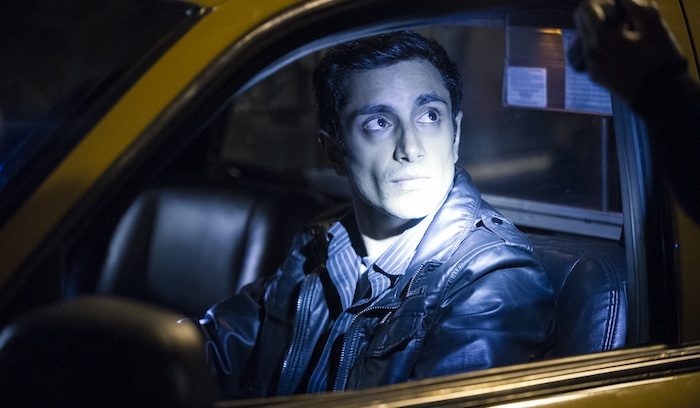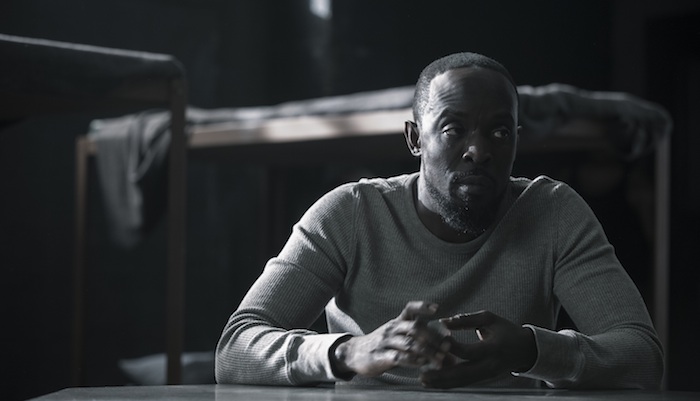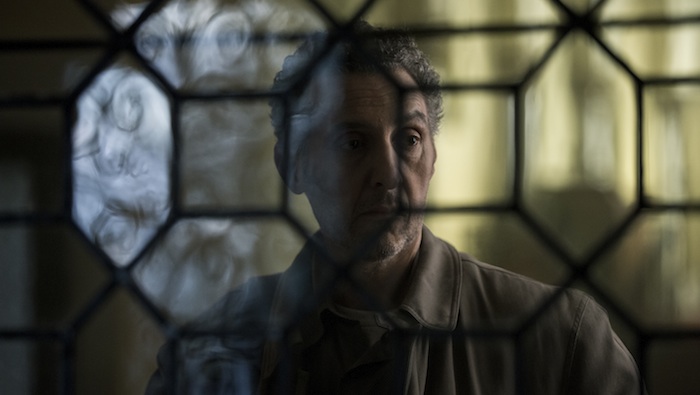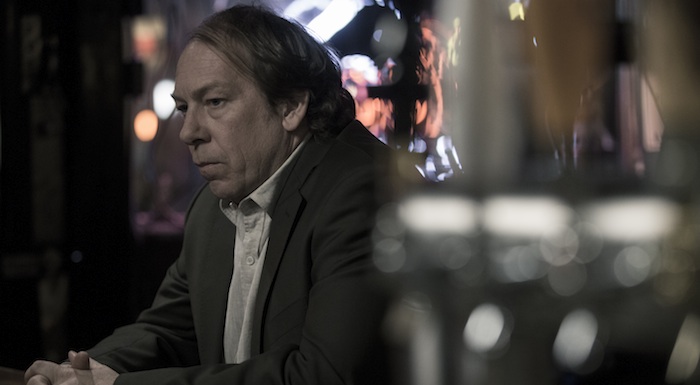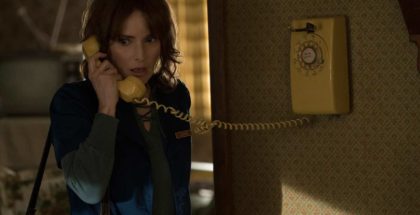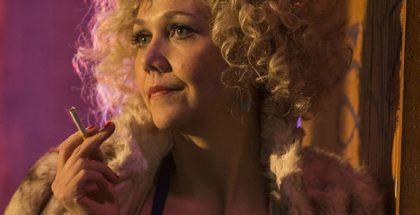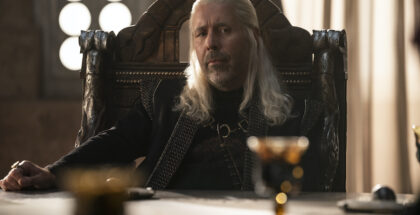UK TV review: The Night Of
Review Overview
Cast
9Script
9Direction
9David Farnor | On 18, Sep 2016
“If the glove doesn’t fit, you must acquit.” That’s a lawyer speaking at the trial of Nasir Khan (Riz Ahmed), a young Pakistani-American, in HBO’s The Night Of. Invited to a party in downtown Manhattan, he borrows his dad’s taxi to get there, but ends up picking up a fare by mistake. Her name’s Andrea. A night of booze, drugs and other naughty things later, he wakes up in the kitchen, finds her dead in the bedroom, and ends up on trial for murder.
Sound familiar? That’s because this is a remake of Criminal Justice, the 2008 BBC thriller starring Ben Whishaw. Released over five nights, it was a national sensation, chronicling the impact of the British legal system upon someone caught at its heart. Tradition dictates that the American version of a hit British show should be worse, but The Night Of takes the basic premise of Peter Moffat’s BAFTA-winning show and turns it into its own gripping, scathing take on US justice.
The five hours are extended to eight, giving writers Richard Price and Steve Zaillian enough breathing space to expand the programme’s scope into something impressively wide-reaching. We follow not just Naz, but also the knock-on effects of his arrest upon his family, as his parents struggle to make ends meet with their taxi impounded. We see his lawyer, Jack Stone (John Turturro), dealing with the politics of policing – and the media-savvy manipulation of another lawyer, who pushes her way into the fray, using Chandra Kapoor (Amara Karan) as her politically-correct ticket to both money and exposure. We see the conspiring between DA Helen Weiss (the superbly thin-lipped Jeannie Berlin) and world-weary Sergeant Box (Bill Camp). And, all the while, we watch as Naz finds himself pushed and pulled by the harsh environment of prison, where he is taken under the wing of kingpin Freddy (Michael Kenneth Williams).
The result is more multi-faceted than a flatpack Swiss army knife made by IKEA, as Zaillian and Price scrutinise everything from the media and juries to the revolving doors of US correctional facilities. As soon as Nazir is behind bars, we hear the officer on the door welcoming back familiar faces – a speech that is repeated within earshot more than once. Underneath it all bubbles the undercurrent of racial prejudice and the treatment of Muslims at all levels of society. Even the nice guys can’t help it. “Nazir. What do you like to be called?” asks Box, when he first meets his suspect. “Naz,” comes the reply. “Ok,” he nods. “That’s easy.”
The show delivers all these Important Issues with the kind of weight you’d expect from a glossy HBO series arriving in the wake of Serial and Making a Murderer. This, the opening titles, the humming score, the witty use of songs over the end credits, tells us, is Good TV. That prestigious attitude comes with its own share of flaws, as the overly serious dialogue occasionally veers into cliche, and the focus on anti-Muslim sentiment potentially wanders into another area of stereotyping, when Naz crosses paths with an angry, racist eyewitness.
But the show’s broad scale is so carefully realised that every narrative strand rings true. Where you might expect the prison scenes to descend into familiar formula, the cast ensure that the brutality and brooding transformation of Naz into a more hardened thug feels tragically convincing. Fresh from a standout turn in Hap and Leonard, Williams (best known for his role as Omar in The Wire) is stellar as Freddy, enjoying the chance to be quietly menacing in the shadowy corner of his cell. Ahmed, meanwhile, is as excellent as ever; after establishing himself as one of Britain’s best young actors in Shifty and Four Lions, he’s gone on to deservedly star-making turns in Rogue One and Jason Bourne. Here, he combines his earnest charisma and wide-eyed youth with a gradually glowering presence, a combination that makes him believable as a wayward twenty-something having the worst night of his life as well as a jail star on the rise – in any other hands, that balance wouldn’t work. As his recent, powerful essay in The Guardian proves, he brings with it a sadly keen understanding of the realities of living as an ethnic minority in a post-9/11 world.
John Turturro is equally fantastic as Jack Stone, a kerb-crawling lawyer who usually represents guilty parties and dodgy punters. Originally intended for James Gandolfini, it’s easy to see how the reckless lawman, who wanders around with cling film on his feet to cure a gross case of eczema, could be a distraction from the main narrative. But Turturro underplays his outsider superbly, allowing his own part of the story (along with his facial expressions) to flourish, Better Call Saul-style, without taking away from Naz’s ordeal. Even a bit of Coen brothers-style comic relief with a cat is pulled off handsomely.
Handsome is certainly the word: Steven Zaillian, who worked with David Fincher The Girl with the Dragon Tattoo, and Man on Wire’s James Marsh direct the tale with an astonishingly precise eye, while Nick Houy and Jay Cassidy edit the strands together with the kind of class you’d expect from veterans of Warrior and Into the Wild. One montage of Box retracing Naz’s steps on the central night in question rivals Fincher’s Dragon Tattoo for class, while every frame is full of tiny, realistic details, right down to Stone’s rusty, squeaking can opener.
The camera has a highly effective knack of picking out our characters’ surroundings, making sure that everyone is presented as a product of their environment – behind doors, through bullet-ridden windows. Interrogations across police tables pull focus from participant to the other, leaving us unsure which side of the fence we stand. When an officer walks up to Naz to give him an asthma pump – an act of kindness – the camera stays low-level, only highlighting the gun stuck in his belt. Throughout, the dialogue communicates everything in negatives to reinforce the mood of uncertainty and restriction. “Do you ever lie, Mr. Kahn?” quizzes Weiss. “I try not to,” he responds. By the end of it, it doesn’t matter whether he’s innocent or guilty of the murder; he’s already been turned into a criminal.
It’s a masterclass in accomplished storytelling – a reminder that Good TV can also be good TV. As the story nears its conclusion, The Night Of flirts with inspirational closing speeches, flashes of diligent detective work and smartly reaps revelations from the background seeds sowed in its opening episode, but it smartly refuses to take the easy route and conform to conventions. The result is a magnificent takedown of the modern legal system, one that proves that justice isn’t blind or biased, but simply indifferent – a never-ending, messy machine that turns, not for what’s right or even what’s wrong, but for what’s easy and affordable. The people crushed in the middle of the cogs? They’re forgotten about, soon to be replaced by someone else. “Right place, right time,” smiles Stone in Episode 1, when he gets himself hired by Naz, hoping for either big bucks or the chance to make a big difference. Eight episodes later, we realise there’s no such thing.
The Night Of is available on DVD and Blu-ray and is available now on Sky Box Sets. Don’t have Sky? You can also stream it on NOW, as part of a £6.99 Entertainment Month Pass subscription – with a 7-day free trial.
Photo: HBO


